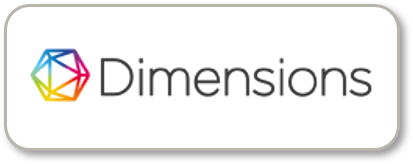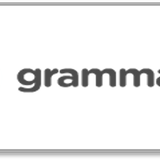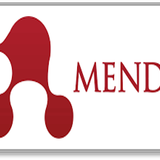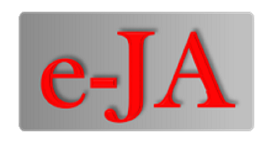Analysis Of Factors Influencing The Occupation Of Fraud Detection
DOI:
https://doi.org/10.24912/ja.v27i2.1428Abstract
This study analyzes the influence of Forensic Accounting, Investigative Audit Capability and Auditor Experience on Fraud Detection in the Perspective of BPK and Central BPKP Auditors. The population of BPK and Central BPKP employees in Jakarta totaled 218 people, and the sample obtained was 97 people. The research method is quantitative to test the hypothesis and the data is processed by Smart PLS 3.00. The findings show that Forensic Accounting has no effect on fraud detection. Investigative Audit Ability has a significant effect on fraud detection and Auditor Experience has a significant effect on Fraud Detection. The results of the study show that forensic accountants are not fully involved in fraud detection efforts so that the influence of forensic accountants plays little role in fraud detection.
References
Abdulrahman, S. (2019). Forensic Accounting And Fraud Prevention In Nigerian Public Sector: A Conceptual Paper. International Journal of Accounting and Finance Review, 4 (2), 13- 21.
Bassey, E. B. (2018). Effect Of Forensic Accounting On The Management Of Fraud In Microfinance Institutions In Cross River State. IOSR Journal of Economics and Finance, 9 (4), 79- 89.
Batubara., ED. (2020). Penerapan Akuntansi Forensik Dan Audit Investigatif Terhadap Mendeteksi Kecurangan (Fraud). Juripol (Jurnal Institusi Politeknik Ganesha Medan), 3(2), 9–16. https://doi.org/10.33395/juripol.v3i2.10 776.
Bologna, G.J and Lindquist, R.J, (2016). Fraud Auditing and Forensuc Accounting, 2nd Edition.
Brad, L., Munteanu, A., and Brasoveanu, I. V. (2016). Measuring the Performance of Romanian Listed Companies Considering their Individual Characteristics. Procedia Economics and Finance, 32, 1225–1235. https://doi.org/https://doi.org/10.1016/S2212-5671(15)01500-2.
Cheng, X., Liu, S., Sun, X., Wang, Z., Zhou, H., Shao, Y., and Shen, H. (2021). Combating Emerging Financial Risks In The Big Data Era: A Perspective Review. Fundamental Research, 1(5), 595–606. https://doi.org/https://doi.org/10.1016/j.fmre.2021.08.017.
Crumbey, D.L, Fenton, E.D, Smith, G.S, Heitger, L.E. (2019). Forensic and Investigative Accounting, 9th Edition, CCH Inc.
Dasila, R. A., and Hajering, H. (2019). Pengaruh Pengalaman, Independensi Dan Skeptisme Profesional Auditor Terhadap Pendeteksian Kecurangan. PARADOKS: Jurnal Ilmu Ekonomi, 2(1), 61–80.
Ghozali, I, Hengky, L, (2018), Partial Least Squares, Konsep Teknik dan Aplikasi Menggunakan Program SmartPLS Untuk Penelitian Empiris, Edisi 2, Badan Penerbitan, Universitas Diponegoro, Semarang, 2018.
Hamilah, H., Denny, D., and Handayani, E. (2019). The Effect Of Professional
Education, Experience And Independence On The Ability Of Internal Auditors In
Detecting Fraud In The Pharmaceutical Industry Company In Central Jakarta.
International Journal of Economics and Financial Issues, 9(5), 55–62. https://doi.org/10.32479/ijefi.8602.
Harris, D. G., Shi, L., and Xie, H. (2018). Does Benchmark-Beating Detect Earnings Management? Evidence From Accounting Irregularities. Advances in Accounting, 41, 25–45. https://doi.org/https://doi.org/10.1016/j.adiac.2018.04.001.
Inulhaq, N., Sukarmanto, E, and Purnama Sari. (2019). Pengaruh Akuntansi Forensik dan Audit Investigasi terhadap Pendeteksian Fraud, Prosiding Akuntansi. 309-319. https://karyailmiah.unisba.ac.id/index.php/akuntansi/article/view/18137.
Islam, S., and Stafford, T. (2022). Factors Associated With The Adoption Of Data Analytics By Internal Audit Function. Managerial Auditing Journal, 37(2), 193–223. https://doi.org/10.1108/MAJ-04-2021-3090.
Karyono. (2017). Forensic Fraud, Yogyakarta, C.V. Andi.
Mc Daniel, (2020). “The Effects of Time Pressure and Audit Program Structure on Audit Performance”. Journal of Accounting Research, 28 (2), pp. 267-285.
Ogundana O., Okere, W., Ogunleye O. and Oladapo I. (2019). Forensic Accounting and Fraud Prevention and Detection in Nigerian Banking Industry. COJ Reviews and Research, 1 (1), 1-8.
Okoye, E.I., Adeniyi Segun I. and James Obioma N. (2019). Effect of Forensic Accounting On Fraud Management On Selected Firms In Nigeria. International Journal of Economics, Business and Management Research. 3(12). 149-168/ www.ijebmr.com.
Oyedokun, (2016). Audit, Investigationa, and Forensic Accounting: Exploring The Nexus. Practical Approach to Fraud Investigation/Forensic Accounting Course. OGE Professional Services July 20-21.
Peraturan Kepala BPKP No.17 Tahun (2017). Tentang Pedoman Pengelolaan Kegiatan Bidang Investigasi.
Rahmawati, A., Simorangkir, P., and Ginting, R. (2021). Pengaruh Akuntansi Forensik, Skeptisme Profesional dan Pengamanan Audit terhadap Deteksi Fraud. Jurnal Akunida, 7(1996), 113–122.
Sihombing, Evenri. (2019). The Effect of Forensic Accounting, Training, Experience, Work Load And Professional Skeptic on Auditors Ability to Detect of Fraud. International Journal of Scientific and Technology Research, 8 (8), 474-480.
Singleton T.W., James Od., and Singleton, A.J. (2020). Fraud Auditing and Forensic Accounting, Fourth Edition, Wiley Corporation, F and A.
Sugiyono. (2018). Metodologi Penelitian Bisnis Pendekatan Kuantitatif, Kualitatif, Kombinasi dan RandD (3rd ed.). Jakarta: Alfabeta.
Suryani, Elly., and Helvinda, Vanya. Ayu Hevinda. (2018). Pengaruh Pengalaman, Risiko Audit, Dan Keahlian Audit Terhadap Pendeteksian Kecurangan (Fraud) Oleh Auditor Survey Pada Kap Di Bandung Auditing: A Journal of Practice and Theory, 1–9.
Syaidah, N., Assagaf, A., Hartati, S. J., and Muhajir. (2019). Akuntansi Forensik Dan Audit Investigatif. Zifatama Jawara.
Tuanakotta, Theodore, M. (2016). Akuntansi Forensik dan Investigatif. Salemba Empat, Jakarta.
Wiharti, R. R., and Novita, N. (2020). Dampak Penerapan Akuntansi Forensik dan Audit Investigasi dalam. Jurnal Ilmiah Akuntansi Dan Humanika, 10(2), 115– 125.
Downloads
Published
How to Cite
Issue
Section
License
Copyright (c) 2023 Jurnal Akuntansi

This work is licensed under a Creative Commons Attribution-NonCommercial-ShareAlike 4.0 International License.
This journal provides immediate open access to its content on the principle that making research freely available to the public supports a greater global exchange of knowledge.

This work is licensed under a Creative Commons Attribution-NonCommercial-ShareAlike 4.0 International License



















